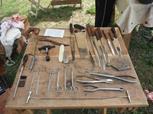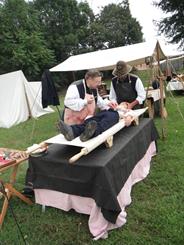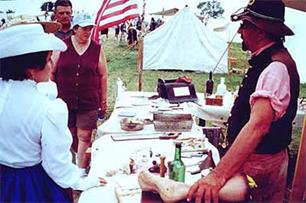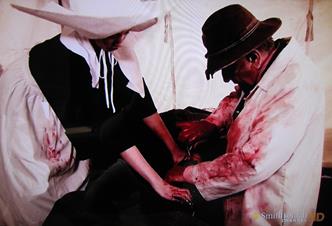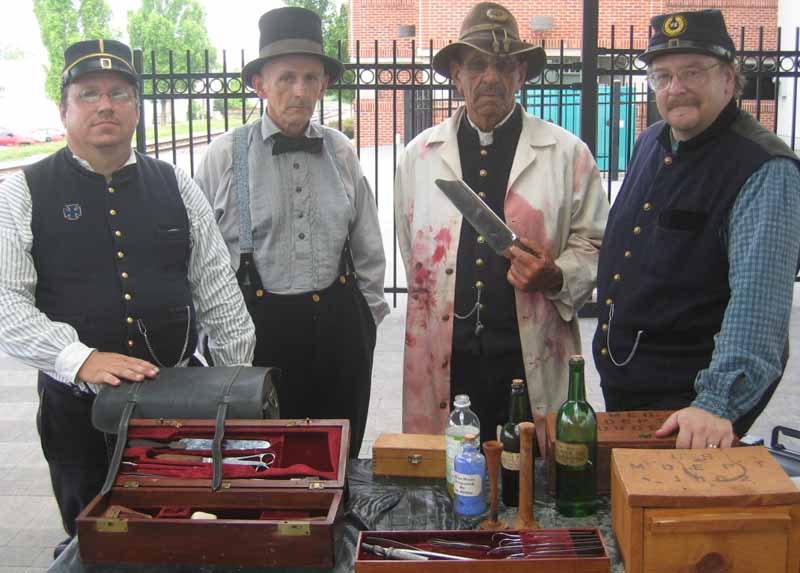Field Hospital Surgeons, Stewards, Nurses
Medical knowledge at the beginning of the Civil War was still rather primitive. Doctors did not understand infection and were perplexed to prevent it, so there was no attempt to maintain sterility during surgery. In a time before antibiotics, minor wounds could easily become infected and perhaps fatal. While the typical soldier was at risk of injury or death in combat, he faced an even greater risk from disease. Twice as many men died of disease than of gunshot wounds in the Civil War. Dysentery, measles, small pox, cholera, pneumonia, and malaria were the soldier's greatest enemy. But as in many other technologies and professions of the time, the war drove advancements in medicine.


